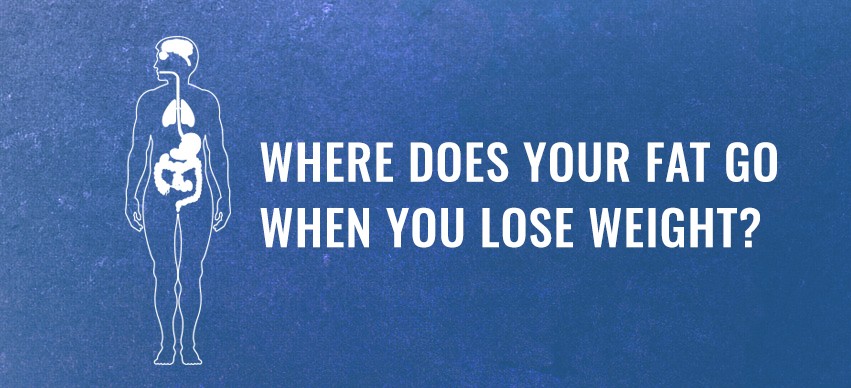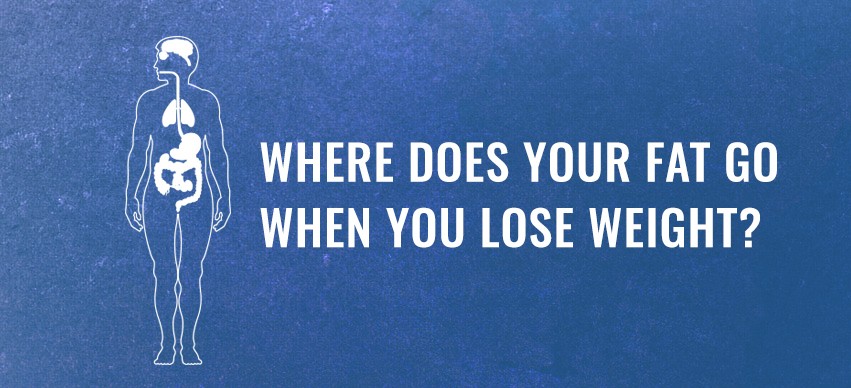Evolution of Prescription Refills: From In-Person to Online ..
6 Min Read


Losing those unwanted pounds that you gained over the festive season is something we all set our minds on. We work extensively and tirelessly to get rid of that excess fat. We try every method possible to have a speedy return to our normal weight once again. But, a lot of the times, after weeks of trimming and exercising, you suddenly slip into a pair of jeans and realize your waist has grown again. How does this happen? What happens to all that fat that you just lost? So, where does fat go when you lose weight?
The food you eat has a lot to do when it comes to the question of weight and weight loss. Most people who have weight issues usually have some degree of insulin and leptin resistance. Leptin is the hormone that is responsible for regulating your appetite. So when your leptin level increases, it signals to the body that you are full and this causes you to stop eating.
However, when you become resistant to the effects of leptin, you will not respond to the signal that says you are full and thus will overeat. Refined sugar was seen as being very effective in causing leptin resistance in people while fructose blocked the burning of fat. Therefore, if you are leptin or insulin resistant and you keep consuming fructose and grains, you are just programming your body to create and store fat. This is why overweight people are always told to restrict their fructose intake to only about 15 to 25 grams per day.
In today’s world, due to our varied lifestyles, the rate of obesity seems to be rising rapidly and people are constantly focused on dropping those additional pounds. They do this through various means like:
Through these, and many other alternative methods, people seek to have a smaller body. But where does all that fat go?
Our body is known to convert the molecules in our fat cells into usable forms of energy. This is responsible for shrinking the cells. Getting this to happen, however, is an intrinsic procedure that requires some explaining.
Weight loss occurs when you burn calories, this we are all aware of. Calories measure the energy in the food you eat in the form of fats, proteins and carbohydrates. Energy is needed to keep everything running in our body and basically, more work means more energy.
Calories are used to digest food. Once the food is broken down into carbohydrates, proteins and fats, the body uses the remaining energy or converts it into fat to be stored in the fat cells. In order to lose weight, a person needs to burn more calories than they consume to start using up the reserve. When you don’t ingest enough calories to fuel your additional work, your body starts to pull from the fat stores.
Since fat, basically stores energy, a series of complex metabolic processes convert fat into usable energy. While most health experts assume that lost fat is converted into heat and energy, it has been found that you actually breathe out fat in the form of carbon dioxide. This means you exhale your lost weight.
A study conducted at an Australian University found that 84% lost fat was converted to carbon dioxide while the rest becomes water, which you lose through peeing, crying, sweating and other ways by which the body dumps water.
Excess dietary carbohydrates and proteins are converted into a type of fat called triglyceride. So when people try to lose weight, they are basically trying to metabolize these triglycerides while keeping their fat-free mass intact. Triglycerides are made up of 3 atoms – carbon, hydrogen, and oxygen. Their molecules can only be broken down through a process of oxidation, which unlocks these atoms.
It has been found by Professor Andrew Brown, head of the UNSW School of Biotechnology and Biomolecular Sciences that the process of losing 10 kilograms of fat requires 29 kilograms of oxygen to be inhaled. This metabolic process results in the production of 28 kilograms of carbon dioxide and 11 kilograms of water.
Similarly, if you follow the atom in 10 kilograms of fat as they are lost, about 8.4 kilograms are seen to be exhaled out through the lungs as carbon dioxide. The remaining 1.6 percent was seen to turn into water, which would then be excreted in urine, feces, sweat, and other bodily fluids, the Professor reported. The reason this is not obvious to people is that the carbon dioxide gas we exhale is invisible.
Not many have been able to understand how fat gets converted into carbon dioxide as it involves a lot of complicated chemistry. However, now that we are aware of this, trainers, doctors and even nutritionists are experimenting with newer ways to help you shed pounds. It has been found that by taking up some moderate amount of exercise instead of just lounging around lazily, your metabolic rate will increase seven-fold. This said, you can hamper any potential weight loss by not keeping a check on what foods enter your system. So now that you know the secret of your lost weight, try engaging in a regimen that will prevent you from gaining back those lost pounds. Remember along with a healthy, nutritious diet, you also have to regularly exercise to lose weight. And, don’t worry about where does fat go when you lose weight. Instead, focus on how you burn calories and how wonderful your body looks thereafter.